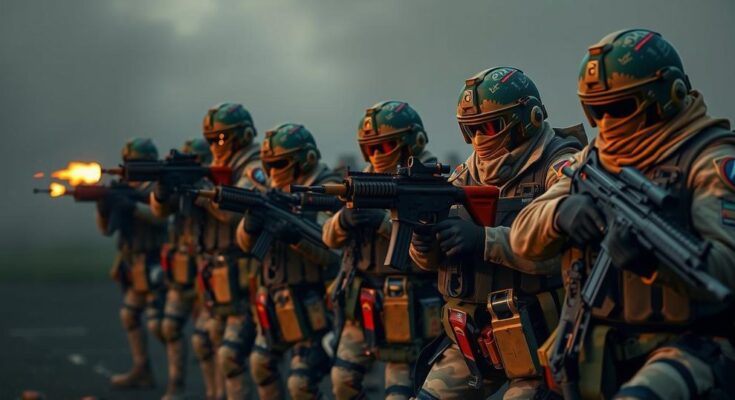Donald Trump’s return to the White House is set to significantly impact U.S. foreign policy amidst rising Middle East tensions. Expert Robert Ford highlights the limited Republican support for a two-state solution, ongoing conflicts in Gaza and Lebanon, and military support for Israel as key issues. Trump’s administration may face challenges in addressing these crises in light of regional expectations and shifting alliances.
As former President Donald Trump prepares for his anticipated return to the White House, there are significant implications for American foreign policy amidst rising tensions in the Middle East. Expert Robert Ford suggests that while Trump may not be able to conclude ongoing conflicts swiftly, he could influence negotiations relating to the Ukrainian war and the enduring strife in Gaza and Lebanon. However, he highlights the limited Republican support for a two-state solution regarding Israel and Palestine, indicating that the Trump administration may not pressure Israel toward recognizing Palestinian statehood. The situation is further complicated by the urgent Arab demands for solidarity with Palestine, driven by widespread loss of civilian life during the ongoing Israeli offensive. Ford believes that any substantial push for progress will likely come from Gulf Arab leaders, who may influence Trump’s stance on Palestine. Amidst these geopolitical dynamics, Israeli Prime Minister Netanyahu desires normalization of ties with Saudi Arabia, contingent on the recognition of a Palestinian state. Ford posits that Trump, skeptical of Saudi conditionality on Palestine, might initially pursue a US-Saudi defense agreement without intertwining it with Palestinian statehood. Historical support patterns illustrate that the Republican Party has shown minimal inclination to advocate for a Palestinian state, complicating the prospects for diplomatic breakthroughs. On military support for Israel, Ford anticipates that American arms supplied to Israel will continue unabated, with possible shifts in foreign aid philosophy under Trump’s administration potentially leading to reduced assistance in the long term. The conflict involving Hezbollah offers another challenging scenario, where Ford suggests that Trump might engage discussions early in his administration, given a family connection to Lebanon. In terms of Syria, while Ford expects military withdrawal by Trump from both Syria and Iraq, he notes that the enduring relationship between the Assad regime and Iran will remain intact. Regarding Iran, the Trump administration is forecasted to adopt a “maximum pressure” strategy, differing starkly from the prior administration’s posture. This includes firm actions against countries engaging with Iranian oil imports. With regard to Ukraine, internal divisions within the Trump team may lead to delayed policy decisions, underscoring the complexities that await Trump upon reassuming office. Ultimately, Ford anticipates a significantly altered foreign policy landscape under Trump’s leadership, characterized by loyalty among advisors and substantial personnel changes in Washington.
The incoming administration of Donald Trump is poised to reshape U.S. foreign policy amidst heightened tensions in the Middle East. With significant geopolitical conflicts ongoing, including those in Gaza and Ukraine, expert opinions suggest that while Trump may struggle to resolve wars quickly, he may wield influence through negotiations. The Republican Party’s historical stance against Palestinian statehood poses potential obstacles for diplomatic efforts. The situation is further intensified by the humanitarian crisis in Gaza, and the complex dynamics with Israel, Saudi Arabia, and Hezbollah, all demanding careful navigation as Trump prepares to take office again.
In conclusion, Robert Ford’s insights reveal a complex landscape for Trump’s forthcoming administration, highlighting the significant geopolitical challenges it faces in the Middle East. With entrenched conflicts, limited Republican support for Palestinian statehood, and regional demands for solidarity, the prospect for diplomatic progress appears limited. Furthermore, given potential shifts in military aid and ongoing tensions with Iran, the new administration’s policies will likely resonate across the geopolitical sphere, affecting relationships and dynamics for years to come.
Original Source: www.arabnews.com




